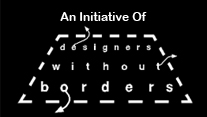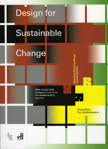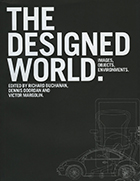Victor Margolin

I once thought that the greatest obstacle to reflective thought was the endless haptic texting that occupies the mental space of so many people but now I have a new culprit, data. Devices that have dissected our bodily functions into tiny shards flood the market, enabling us to either confirm the smooth functioning of our multiple organs, energy flows, and synapse synergies or else to detect glitches that merit our attention. Never have people had such an opportunity to be so aware of their bodies and take control of even the most minute irregularities in their physical performance.
Bodily functions are just one of the many new data sites that were once invisible to the naked eye. For the data revelations that now rain upon us in torrents we have to thank the new analytics. These are based on algorithms that were once more useful to spy agencies than to a vast public with an insatiable desire to understand the world in terms of data flows. I recently joined a service called Academia.edu in order to download several papers by a colleague. In exchange for the opportunity to access my colleague’s papers, I had to sign up and agree that any papers of mine that I uploaded could be downloaded by others. I chose not to upload any papers but some of them have mysteriously appeared on Academia.edu, prompting monthly reports from the service on how many times they have been downloaded. I learned from a recent communiqué that a short essay I wrote many years ago was recently accessed by one person, a fact that was reinforced by a visual that showed a little hill on a long flat line. The hill represented this single download within a long dry spell of inactivity.
I am wondering what value there is to my knowing that someone downloaded an almost forgotten essay I wrote a long time ago. Were I an active uploader of my papers, I could certainly multiply the data I receive from Academia.edu to an exponential degree. I could be aware of how many people downloaded the letter to the editor I wrote early in my career, complaining about a colleague’s misinterpretation of a sentence in one of my papers. I could know my rankings among other colleagues in terms of download numbers and could add the data to my CV. The latter is not a joke since the Citation Index, which keeps track of how many times an academic paper is cited, is often used to measure the worth of a scholar’s intellectual productivity. Academic journals now routinely publish their Citation Index ratings to induce scholars to submit papers to them. The academic value of journals is also measured by another and perhaps more insidious statistic – the percentage of papers rejected. A journal that rejects a greater percentage of papers will receive a higher ranking regardless of the reasons for the rejections. It may simply mean that a particular journal received a considerable number of bad papers.
Much of the validation of big data comes from the belief that the more we know about how systems function – whether they are bodily systems or social systems – the more we can make better decisions about managing those systems. I won’t debate the value of more data in improving city services but I do question the potential inundation of statistical data that is meant to aid people in making personal decisions such as what movie to watch or what book to read. Rather than relying on a good critic to evaluate a film, decisions are often made on the basis of how many other people liked the film or book. This data is converted into numerical ratings that have the same or more influence than a critic’s opinion.
The move to quantify human activity and consequently convert it into data for decision-making is nowhere more evident than on social media sites such as Facebook. The new category of “Like” now functions to tally votes in innumerable popularity contests. When I go to a café, I find a small announcement on the table that encourages me to “Like” the café on Facebook or another social media site and I am frequently implored to “Like” a service or product in order to boost its numerical ratings on a particular site.
Thus, big data is changing our behavior in multiple ways. By providing information about realms of experience that we once knew nothing about, it is making us hyperconscious of the activity in those realms, perhaps far more than is necessary. As we are invited to produce more data, we participate in the quantification of human activity that may tell us nothing about what that activity means and may also create false measurements of value.
To say that we were better off when we knew less about some things may sound like heresy but there is truth to it, particularly when decisions are based on quantifiable indicators rather than sound individual judgment. To the degree that we shift our personal and collective decision-making to data responsiveness, we are surrendering our capacity to make informed judgments based on sounder means. At the same time, fending off invasive data hordes leaves us more room to cultivate reflective thought. In the long run, that is far more valuable than making choices based on meaningless statistics or knowing all there is to know about things that don’t matter.
Victor Margolin is Professor Emeritus of Design History at the University of Illinois, Chicago. He is currently working on a World History of Design to be published by Berg in London.











Leave a Reply
You must be logged in to post a comment.